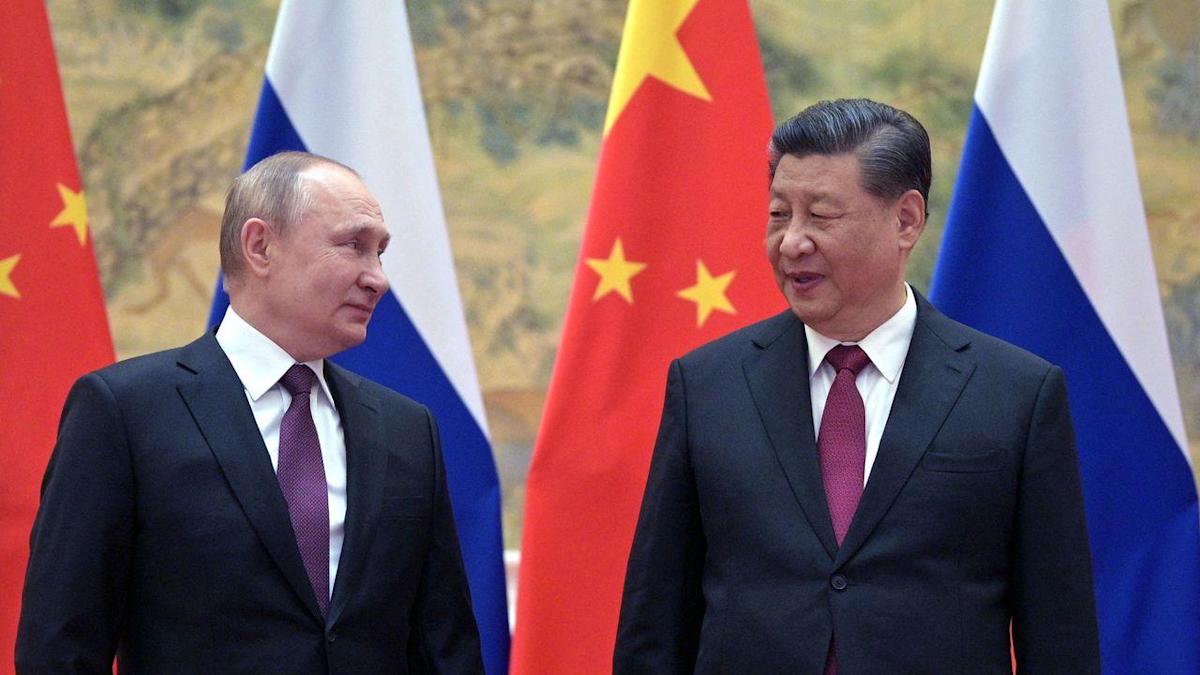
Russian President Vladimir Putin and Chinese President Xi Jinping projected unity against Western “interference” in a thinly veiled joint statement on Friday, as the two leaders met ahead of the opening ceremony of the Beijing Olympics.
Why it matters: The two authoritarian powers have fostered deeper ties, including in military cooperation, as tensions with the U.S. have soared over the past several years.
Stay on top of the latest market trends and economic insights with Axios Markets. Subscribe for free
-
Both are engaged in military standoffs with the West, though one crisis is more acute — Russia is building the capacity to invade Ukraine at any moment, while China has ramped up its saber-rattling toward Taiwan with the hope of achieving unification in the next decade.
-
On both issues, Putin and Xi appeared to back each other’s positions.
Key excerpts: “No State can or should ensure its own security separately from the security of the rest of the world and at the expense of the security of other States,” the two leaders affirmed in the joint statement.
-
“The sides oppose further enlargement of NATO and call on the North Atlantic Alliance to abandon its ideologized cold war approaches.”
-
“The Chinese side is sympathetic to and supports the proposals put forward by the Russian Federation to create long-term legally binding security guarantees in Europe.”
-
Context: Russia has repeatedly echoed this language in negotiations over NATO’s expansion, using the threat of military action to demand a legal guarantee that Ukraine will never join the alliance.
“The sides stand against the formation of closed bloc structures and opposing camps in the Asia-Pacific region and remain highly vigilant about the negative impact of the United States’ Indo-Pacific strategy on peace and stability in the region.”
-
Context: Beijing has vigorously opposed the formation of AUKUS, a new security pact through which the U.S. and U.K. will help Australia obtain nuclear-powered submarines and deepen cooperation on sensitive technologies.
“The Russian side reaffirms its support for the One-China principle, confirms that Taiwan is an inalienable part of China, and opposes any forms of independence of Taiwan.”
-
Context: China’s ambassador to Washington recently warned that independence for Taiwan — a self-governing, democratic island that Beijing views as a rebellious province — would “most likely” lead to a “military conflict” between the U.S. and China.
“Russia and China stand against attempts by external forces to undermine security and stability in their common adjacent regions, intend to counter interference by outside forces in the internal affairs of sovereign countries under any pretext, oppose colour revolutions, and will increase cooperation in the aforementioned areas.”
-
Context: “Interference by outside forces” is a common refrain used by both countries to condemn concerns raised about human rights or democracy, including the genocide in China’s Xinjiang region.
-
The “colour revolutions” phrase, which was most recently used to denounce the uprising in Kazakhstan, carries the implication that U.S. machinations are responsible for pro-democracy movements in each country’s neighborhood.
The big picture: China and Russia have their own areas of strategic competition, including in Central Asia, but the warming of relations between the two powers is a trend closely watched in Washington.
-
Putin — who has seldom left Moscow during the COVID-19 pandemic, but did so to become the highest-profile guest at the Beijing Olympics — said in opening remarks that the relationship had “taken on a truly unprecedented character.”
-
“Friendship between the two states has no limits,” the joint statement added.
More from Axios: Sign up to get the latest market trends with Axios Markets. Subscribe for free




